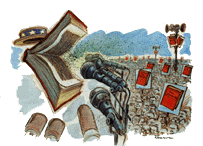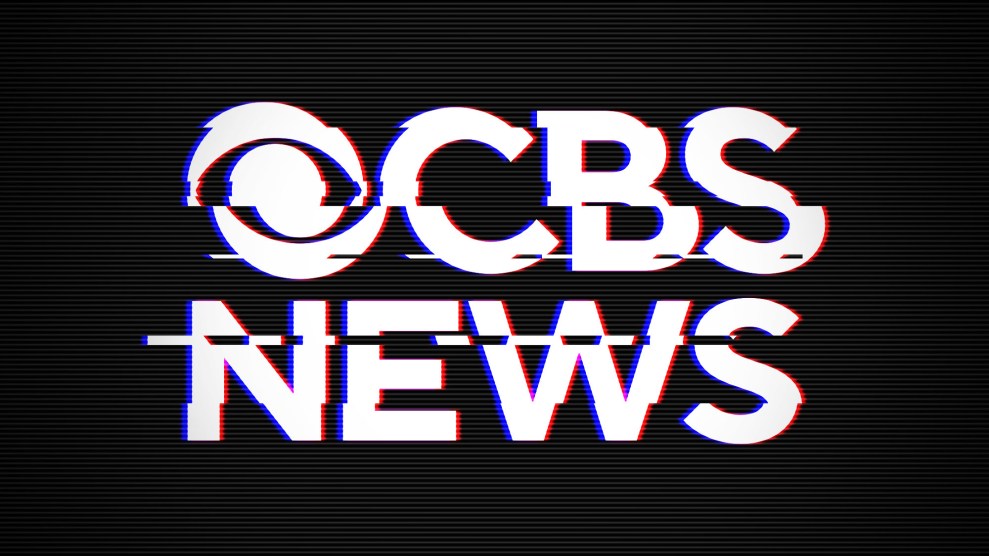
Image: George Riemann
[Katha Pollitt and John Judis have written extensively about the American political climate during Mother Jones‘ first two decades, so we asked them to identify the 10 most important political books since 1976. They did, with a few qualifiers: “My list is about as arbitrary and personal as Top 10 lists usually are,” Pollitt says, while Judis admits, “These are the 10 books written in the last two decades that have most influenced how I understand the world. I don’t claim they are the 10 best or 10 most representative.” See if you agree. If not, e-mail your own picks to backtalk@motherjones.com.]
Katha Pollitt is a columnist for The Nation magazine and author of Reasonable Creatures: Feminism & Society in American Culture at the End of the Twentieth Century (New York: Vintage, 1994). In the early 1980s, she reviewed books for Mother Jones. Her choices, listed chronologically:
1976 Keywords: A Vocabulary of Culture & Society, by Raymond Williams (London: Oxford University Press). The great Marxist scholar of English literature analyzes the history of 131 crucial words, from “aesthetic,” which has always meant the opposite of “social” and “practical,” to “work,” which did not always mean paid employment.
1978 For Her Own Good: 150 Years of the Experts’ Advice to Women, by Barbara Ehrenreich and Deirdre English (New York: Doubleday). This feminist classic is still the most elegant and spirited dissection of received medical wisdom — a.k.a. sexism.
1983 Imagined Communities, by Benedict Anderson (London: Verso). A brilliant and erudite investigation of the concept of national identity — a modern invention whose psychological power lies in denying that it is one.
1984 Distinction: A Social Critique of the Judgement of Taste, by Pierre Bourdieu (Cambridge: Harvard University Press). With subtlety and sophistication, the great French sociologist analyzes the way social and economic classes are shaped and preserved by myriad tiny but amazingly precise differences — from preferences in food and art to body language and hairstyles. The data are French, the implications universal.
1984 Not In Our Genes: Biology, Ideology, and Human Nature, by R.C. Lewontin, Steven Rose, and Leon J. Kamin (New York: Pantheon). Three prominent scientists debunk genetic determinism and sociobiology so thoroughly it’s amazing The Bell Curve got published.
1988 A Small Place, by Jamaica Kincaid (New York: Farrar, Straus & Giroux). A beautiful, furious essay about the author’s native Antigua, tourist mecca and postcolonial slum — the modern world in a nutshell.
1990 City of Quartz: Excavating the Future in Los Angeles, by Mike Davis (London: Verso). I learned something from every page of this bold social history of Los Angeles as the prototype of a new kind of city, the world megalopolis.
1991 Backlash: The Undeclared War Against American Women, by Susan Faludi (New York: Crown). The book that woke American women from their Reagan-era “post-feminist” nap. Faludi shows how the media operates as a kind of Möbius strip, endlessly recycling half-truths and distortions to “prove” that feminism has made women miserable.
1991 Mao II, by Don DeLillo (New York: Penguin). A Pynchon-like writer leaves his study to explore a world of cults, terrorists, dilapidation, and drift. A tragic meditation on post-modernity as alternating currents of isolation and mass hysteria.
Adolph Reed Jr.’s essays are not collected in a book, but he is the smartest person of any race, class, or gender writing on race, class, and gender. (His writing appears in the Progressive and Village Voice.)
What books would you choose for your 1976-96 political syllabus? E-mail your suggestions to backtalk@motherjones.com.
















